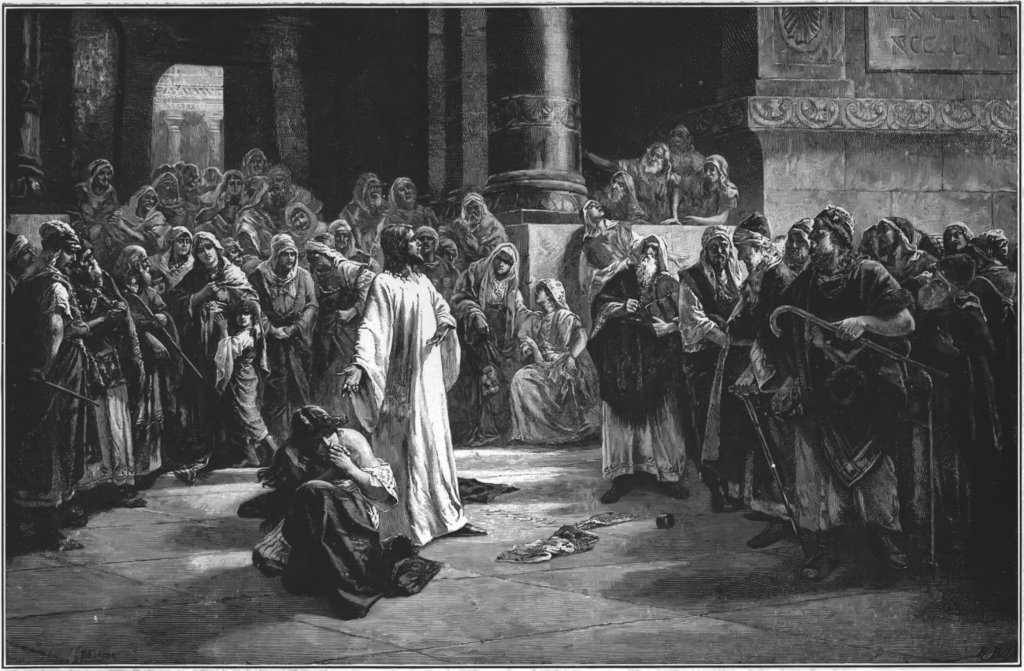Homosexuality: The Christian Perspective
Artículo en Español
The purpose of this article is to provide clarity on a topic that has recently been debated within the Christian Church. Our goal is to provide Truth, since we sincerely believe that Truth “sets free.” (John 8:32) Jesus came to “proclaim liberty to the captives.” (Luke 4:18)
1. What is the Biblical position on Homosexuality?
All teaching and practice must align itself with the Bible, since it is God’s Word. (II Timothy 3:16) There are a multitude of opinions based on “tradition,” “reason” and “experience.” The Church, however, subordinates tradition, reason and experience to Scripture. From a Christian perspective, all “truth” is valid, only to the extent that it conforms to the Word of God. Let’s look at what the Scripture states regarding homosexual behavior.
A. Leviticus 18:22
“You shall not lie with a male as with a woman; it is an abomination.”
B. Leviticus 20:10-16
10 “If a man commits adultery with the wife of his neighbor, both the adulterer and the adulteress shall surely be put to death. 11 If a man lies with his father’s wife, he has uncovered his father’s nakedness; both of them shall surely be put to death; their blood is upon them. 12 If a man lies with his daughter-in-law, both of them shall surely be put to death; they have committed perversion; their blood is upon them. 13 If a man lies with a male as with a woman, both of them have committed an abomination; they shall surely be put to death; their blood is upon them. 14 If a man takes a woman and her mother also, it is depravity; he and they shall be burned with fire, that there may be no depravity among you. 15 If a man lies with an animal, he shall surely be put to death, and you shall kill the animal. 16 If a woman approaches any animal and lies with it, you shall kill the woman and the animal; they shall surely be put to death; their blood is upon them.
Among the sexual sins punishable by death, incest, adultery, bestiality and homosexuality are all placed in the same category. Judaism unambiguously prohibited homosexuality based on the “holiness code” given by the LORD in Leviticus. Judaism was unequivocal in its stance toward homosexual relations; they were an abomination. There is not one syllable in the Bible from Genesis to Revelation that condones homosexual practice. On the contrary it is universally and unambiguously condemned.
B1. Counter Argument to Leviticus texts. Many laws in the Tanakh (Old Testament) were rendered obsolete with the new covenant.
This is a valid point. For example Leviticus 19:19 states, “You shall keep my statutes. You shall not let your cattle breed with a different kind. You shall not sow your field with two kinds of seed, nor shall you wear a garment of cloth made of two kinds of material.”
Which commandments remain valid for the Church today and which are obsolete? Attempts have been made to distinguish “ritual laws” from “moral laws” in the Old Testament. Ritual laws (dietary, circumcision, and a number of “outward” laws) were those laws which served the purpose to distinguish Israel from her pagan neighbors in appearance and form. These were laws that were specific to Israel and not to the nations. Moral laws-such as sexual sins were said to be timeless (and applied to Israel and the nations) and therefore applied to the new covenant as well. There is substantial weight in these distinctions, however, there is no clear systematization and distinction of “ritual” vs. “moral.” For this reason the New Testament must be analyzed.
C. 1 Corinthians 6:9-11
9 Or do you not know that the unrighteous will not inherit the kingdom of God? Do not be deceived: neither the sexually immoral, nor idolaters, nor adulterers, nor men who practice homosexuality, 10 nor thieves, nor the greedy, nor drunkards, nor revilers, nor swindlers will inherit the kingdom of God. 11 And such were some of you. But you were washed, you were sanctified, you were justified in the name of the Lord Jesus Christ and by the Spirit of our God.

As seen from the above text, the New Testament explicitly upholds the sexual laws that were mandated for God’s people in the Old Testament. This removes the apparent ambiguity regarding which Levitical sexual laws remain valid for the Church today. The New Testament consistently affirms the sexual laws found in the Torah. The above text explicitly demonstrates the Biblical teaching that homosexuality is considered sinful, in both old and new covenants.
This is repeated in 1 Timothy 1:9-10, “understanding this, that the law is not laid down for the just but for the lawless and disobedient, for the ungodly and sinners, for the unholy and profane, for those who strike their fathers and mothers, for murderers, 10 the sexually immoral, men who practice homosexuality, enslavers, liars, perjurers, and whatever else is contrary to sound doctrine, 11 in accordance with the gospel of the glory of the blessed God with which I have been entrusted.”
The Greek words “malakoi” and “arsenokoitai” are translated “men who practice homosexuality” in the above texts. It has been convincingly demonstrated by New Testament Pauline scholars such as Richard Hays (Hays 1996, 382) and Robin Scroggs (Scroggs 1983, 106-108) that these words are direct derivatives of Leviticus 18:22 & 20:13 above (see mishkav zakur – “lying with a male.” (The Septuagint (Greek Old Testament) of Lev. 20:13 states, “Whoever lies with a man as with a woman (meta arsenoskoiten gynaikos), they have both done an abomination. “This the idiom from which the noun arsenokoitai was coined. Therefore, Paul’s use of the term presupposes and reaffirms the Holiness Code’s condemnation of homosexual acts. Richard Hays, 1994, 7)
Modern translations (ESV, NIV, NKJV, NASB, HCSB, NLT, RSV (1952)) translate these words accordingly. The NRSV translates the Greek words as “male prostitutes” for “malakoi,” and “sodomites” for “arsenokoitai.”
Furthermore in these passages the Greek word “porneia” translated “sexually immoral” includes all forms of sexually deviant behavior. The frame of reference for sexually deviant behavior was the Scripture, where “sexual immorality” consisted of all sexual relationships outside of the marriage between a husband (man) and wife (woman). (Leviticus 18:6-30) Prohibitions against “porneia” (sexual immorality or fornication) appear in the New Testament at least 25 times, often from the mouth of Jesus. (Mark 7:21)
In 1 Corinthians 6:9-11 or 1 Timothy 1:10 Paul is not debating whether homosexuality is sinful behavior, anymore than he is debating whether idolatry, drunkenness, thievery or adultery are sinful. Paul is simply stating that such behavior (which unequivocally includes homosexuality) is inconsistent with the new life in the Messiah Jesus. He warns the church that people who practice such behavior will not enter the Kingdom of God. It is also clear that some in the church had practiced homosexuality in their former lives ie., before entering the new life in Christ. Therefore all persons can potentially be redeemed from homosexuality, as they can from any number of spiritual vices.
D. Romans 1:24-26
24 Therefore God gave them up in the lusts of their hearts to impurity, to the dishonoring of their bodies among themselves, 25 because they exchanged the truth about God for a lie and worshiped and served the creature rather than the Creator, who is blessed forever! Amen. 26 For this reason God gave them up to dishonorable passions. For their women exchanged natural relations for those that are contrary to nature; 27 and the men likewise gave up natural relations with women and were consumed with passion for one another, men committing shameless acts with men and receiving in themselves the due penalty for their error.
In this passage Paul demonstrates the consequences of God (1:24,26,28) permitting mankind to follow his own desires and passions. The wrath of God in this passage is not in response to vice, but rather vice is a consequence of God’s wrath. In other words, God’s punishment toward mankind is in allowing him to follow his own devices. Mankind’s unchecked desires are “para physin” or “contrary to nature.” Therefore God’s punishment is essentially letting mankind’s “unnatural” desires run their course. That both women and men would exchange natural (kata physin) relationships for those contrary to nature (para physin) is ample evidence for Paul that “God’s wrath is revealed.” (1:18)
Thankfully, the “gospel is the power of God for salvation to everyone who believes.” (Romans 1:16) God’s wrath can be averted by the power of the cross which has the ability to replace our “debased mind” (Romans 1:28) with the “mind of Christ,” (Philippians 2:5) whose desires conform to the will and purpose of God-kata physin.
D1. Counter Argument to Romans 1.24-26 – Homosexuality is ‘natural’ for some.
A common modern argument in favor of homosexual behavior is that it is indeed ‘natural’ for some, i.e. some people are born with a homosexual predisposition. This logic produces a morality based on personal predisposition or what is personally ‘natural.’ If am ‘naturally’ attracted to the same sex it must therefore be good. Christian teaching is not at variance with humankind being ‘naturally’ predisposed toward attitudes and behaviors which are inherently wrong. So what if I am naturally selfish, violent or predisposed to addiction or adultery or pedophilia? Does that ‘natural inclination’ therefore make it a ‘good’ thing? The Bible teaches that every person’s nature is corrupt and must be regenerated by God. Therefore Christ. Thus all men are born naturally into a multitude of vice ~ as Christians we trust God to produce in us a NEW ‘natural’ which is a product of the New Birth in Christ. “If any man be in Christ he is a new creation. The old is passed, behold the new is come.” (2 Cor. 5.17) This is why Jesus says that to enter the Kingdom of God a person must be “born again.” (John 3:3)
2. Jesus never spoke about Homosexuality directly.
Some people have argued that since Jesus never directly confronted the topic of homosexuality he therefore tacitly condoned it. This is an argument from silence. There are at least 3 objections to this rationale.
A. Jesus never directly addresses bestiality or pedophilia. This absence does not argue for their tacit inclusion into the lifestyle of the redeemed.
B. Jesus directly confronts “porneia” (Matthew 15:19) (often translated either fornication or sexual immorality) which included all sexual behavior outside of the bond of marriage between one man and one woman. So in fact Jesus does speak to homosexual practice directly. Please bear in mind that first century Judaism universally acknowledged homosexual behavior to be sinful as it did adultery and all other relationships outside of the bond of heterosexual marriage.
C. Jesus’ purpose is not to set aside the Law of Moses.

17 “Do not think that I have come to abolish the Law or the Prophets; I have not come to abolish them but to fulfill them. 18 For truly, I say to you, until heaven and earth pass away, not an iota, not a dot, will pass from the Law until all is accomplished. 19 Therefore whoever relaxes one of the least of these commandments and teaches others to do the same will be called least in the kingdom of heaven, but whoever does them and teaches them will be called great in the kingdom of heaven. 20 For I tell you, unless your righteousness exceeds that of the scribes and Pharisees, you will never enter the kingdom of heaven.” Matthew 5:17-20
“The Law of Christ” was in many regards more “difficult” than the Law of Moses since Jesus commanded obedience to the Law’s original intent. Whereas murder was “liable for judgment” (Matthew 5:21) in the Law, now “anger is liable for judgment.” (Matthew 5:22) and “hell-fire.” Whereas adultery was prohibited in the Law, now “lustful intent” is condemned, since it is indeed the source of adulterous behavior. In sum, the Messiah did not come to lay aside the Law, but to fulfill its original purpose.
3. “Homosexual is “natural” for some. God wouldn’t want to prohibit a person’s “natural inclination.”
First, in our discussion of Romans 1:24-26 above, we saw that homosexual behavior was not natural, but was in fact, “contrary to nature.” At the same time, because God has permitted man to follow his “debased” inclinations-homosexual behavior may appear “natural” in our fallen world. This is precisely why the current conventional wisdom to follow one’s own prescription for happiness is a recipe for destruction. Oftentimes our “natural” inclinations for happiness are in fact inclinations for corruption. Scripture teaches that we are not free to sin, but are in fact “slaves to sin.” (Romans 6:17)
Regardless of one’s inclinations, our guide to what is “natural” and “good” is Scripture. It is worth noting, that God’s aversion to “evil” behavior flows from the knowledge that sin is a force that destroys the creatures of God. God’s desire is that his creatures not be destroyed by sin but set free from its corrupting power.
“The thief comes only to steal and kill and destroy. I came that they may have life and have it abundantly.” John 10:10
3.a “If Paul had encountered monogamous, consensual same-sex relationships he would have endorsed them. Paul only condemns exploitative relationships.”
First of all if you read Romans 1:27 Paul states unequivocally that the relationship in question is between two consenting men, “men likewise gave up natural relations with women and were consumed with passion for one another.” Paul does not have in mind exploitation of any kind. Second, there were contemporary, 1st Century examples of non-exploitative homosexual relationships that were well known in Greco-Roman culture. Robert Gagnon, the preeminent scholar on homosexual practice and the Bible, in his essay, A Book Not To Be Embraced cites Aristophanes’ speech in Plato’s Symposium and the speech of Callicratidas in the pseudo-Lucianic Affairs of the Heart as two worthy examples that were known in the 1st Century Greco-Roman world, which depict consensual homosexual practice. Philo of Alexandria (25BC-50AD) comments on Plato’s Symposium – which was well known in the 1st Century . Gagnon cites other primary source materials (including Plutarch – AD 45-120) which demonstrate that homosexuality existed in a consensual context in the Apostle Paul’s contemporary context.
In sum, Paul in Romans 1:27 clearly refers to homosexual practice between two consenting individuals. Second, as one would expect, there were examples of consensual non-exploitative homosexual relationships in Paul’s time and culture. Therefore Paul was aware of consensual homosexual practice – and he clearly forbids it – in all of its forms.
4. Christians are prohibited from “judging others.”

“He that is without sin among you, let him first cast a stone at her.” (John 8:7)
“Judge not, that you be not judged. For with the judgment you pronounce you will be judged, and with the measure you use it will be measured to you.” (Matthew 7:1-2)
Some Christians believe that to declare homosexual behavior as sinful amounts to Pharisaical judgmentalism. The two texts above are often cited to support this idea.
First, In John 8:7, Pharisees (Religious leaders) bring a woman caught in the act of adultery. When Jesus said, “He that is without sin among you, let him first cast a stone at her,” Do we believe Jesus was promoting a type of amoralism- “To each his own,” as we might say? Was Jesus indifferent toward sin? Did Jesus permit such behavior since, “no-one is perfect”? The answer to this question is found in the last verse of this narrative, which is less often cited, “and from now on sin no more.” (John 8:11b) Jesus addressed two problems in this narrative, the error of adultery as well as that of hypocrisy. Jesus clearly was not advocating a “laissez faire” approach to Christianity. Jesus didn’t condone either the hypocrisy of the Pharisees or the adultery of the woman. Jesus confronted both issues.
It is true that Jesus warns of the natural human temptation to be unduly concerned with the sins of others, without having the same concern for one’s own vices. Indeed we are warned against hypocritical judgment. It is for this reason that Jesus says, “Or how can you say to your brother, ‘Let me take the speck out of your eye,’ when there is the log in your own eye? You hypocrite, first take the log out of your own eye, and then you will see clearly to take the speck out of your brother’s eye.” Matthew 7:4-5. In sum, the above passages do not present a Jesus indifferent to sinful behavior. Neither do they present a mandate for Christians to remain silent in the face of sin. Jesus plainly confronts both sin and sinner, but warns against hypocrisy in doing so.
5. Jesus accepted the social outcast of his day (lepers, prostitutes, tax collectors, etc) Jesus therefore accepts the Homosexual lifestyle.
Jesus’ ministry gives us the correct definition of “acceptance.” First, Jesus did spend a significant amount of time with “social outcasts.” This is evident to anyone who reads the gospels.
“The Son of Man has come eating and drinking, and you say, ‘Look at him! A glutton and a drunkard, a friend of tax collectors and sinners!’ Luke 7:34
Jesus was often criticized for his close association with “sinners.” The question for the Church is, “What was the purpose of the association?” Did Jesus touch the leper and leave him leprous? Did Jesus visit the adulterer, prostitute, greedy, self-righteous and tax-collector and affirm their respective captivity? No. In each case Jesus confronted the bondage issue, and invited freedom. The results were varied. In some cases the “sinners” recognized their captivity and were set free (Samaritan Woman, John 4; Zacchaeus, Luke 19). In other cases the sinner left carrying his chains (Rich Young Man, Mark 10:17-31). The point is clear: Jesus’ association with “sinners” was motivated out of a desire to see redemption; it was not an association that affirmed vice.
6. Can I be ‘Gay’ and Christian?
There are many people who sincerely believe that their human identity is inextricably bound up in their sexuality. Scripture challenges that idea. Our primary identity as Christians is in our union with Christ (Ephesians 2:6). “Christ is your life.” (Colossians 3:4) As followers, we are all required to lay down our ‘self’ at the cross and ‘follow.’ (Mark 8:34) Our sexual attractions do not form the basis of our human identity – Christ forms that basis and all must be subject to him. Our identity is a product of what God says about us in His Word. That is not deny or to hide from our attractions – especially those that are clearly not a part of the Kingdom. All Christians have attractions and desires which do not conform to our new nature in Christ. Scripture calls these “deceitful desires,” which form part of our old nature. (Ephesians 4:22) These are the sins that “beset” or “entangle;” sins which we are admonished to “lay aside.” (Hebrews 12:1) If you are a Christian and have same sex attraction first you need to agree with God’s Word that this is not an attraction from the Father. Do not be tempted (as many have unfortunately and unwisely done) to create a ‘god’ who will condone your feelings, thoughts, attractions and actions. Agree with God and His Word – which is given to us to redeem us from bondage. Only God can define reality. Temptation is a part of the life of the disciple (Matthew 6:13) and can be resisted through God’s faithfulness to His children (1 Corinthians 10:13) Acting out on our temptations is a different story. 1 Corinthians 6:9-11 (above) makes it clear, however, that people can be deceived into thinking that practicing homosexual behavior is compatible with the Christian life. It is not (in any form), and people who practice homosexual behavior (like heterosexual promiscuity) will not inherit the Kingdom of God. Scripture simply doesn’t conceive of any possible scenario for homosexual behavior or identity.
7. Conclusion
In sum, the canon of Scripture is unequivocal in its presentation of homosexual behavior as a part of human depravity. There can be no honest biblical interpretation that affirms this behavior in any form. There is not one syllable of Scripture that condones or supports homosexual behavior. Homosexual practice like any other deviant behavior is not irreversible. Though the Scripture teaches that we are all born into iniquity-the Scripture equally teaches that the power of the gospel is mightier than the power of sin and its multitude of manifestations.
The church would do well to have a closer association with “sinners.” Too often Churches have not become salt and light to their respective communities, but have become social clubs of like minded “religious people.” If Christians are not socializing with the lepers and tax-collectors of the 21st Century, then we have lost our calling. The body of Christ should seek out and love homosexuals, listening carefully to their pain, struggles and same sex attractions, and lead them to freedom that comes through faith and repentance in Jesus through the power of the Holy Spirit.
“He breaks the power of canceled sin,
He sets the prisoner free;
His blood can make the foulest clean,
His blood availed for me.”
Charles Wesley, 1739
(to commemorate the first anniversary of his conversion)
Article by Sky Cline




